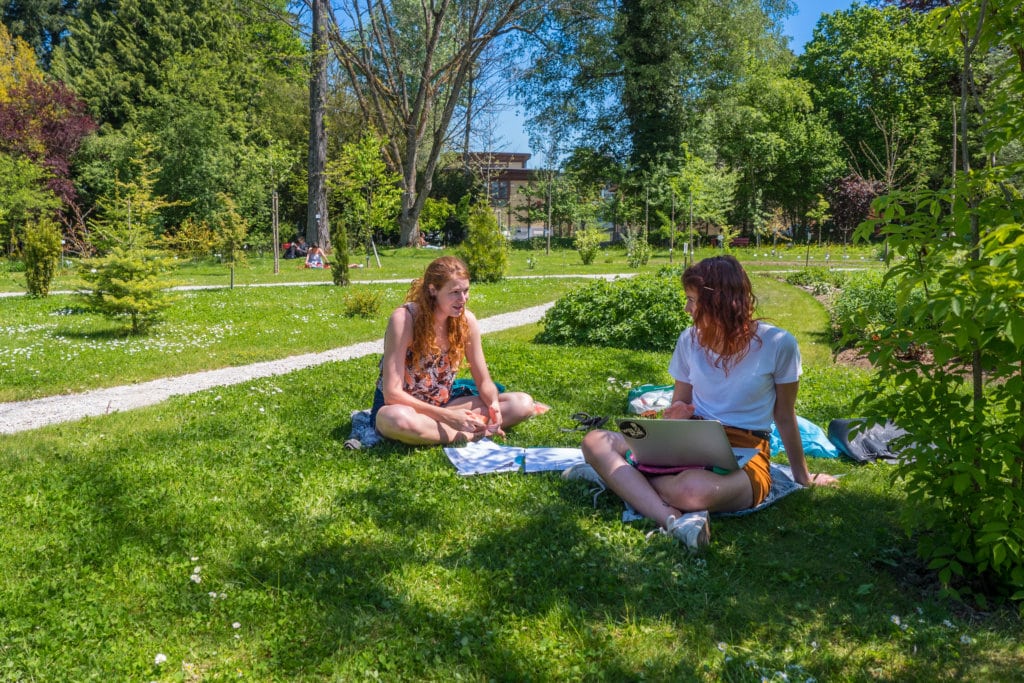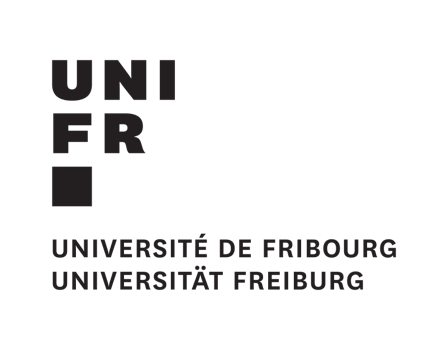If high academic standards are what you seek, consider studying in Switzerland. Zoom in on the bilingual and beautiful mediaeval town of Fribourg and you’ll find the University of Fribourg, an institution that prides itself on being an exemplary place for research, learning, and development.
What drew UK-born Lana Rees here was a desire to improve her French. But what made her stay beyond her Master of Science in Biology and continue on to her PhD is how welcomed by the community, on and off campus. “The city is a bit smaller and cheaper than other Swiss student cities, which is great on a student budget. I enjoyed the ‘student-focused’ atmosphere when I visited since about a quarter of the population are students. It is impossible to walk around without encountering other students,” says the 26-year-old.
The best part about studying at the Faculty of Science and Medicine? Being able to join a thriving community of student researchers and having the full support of experienced faculty members while you’re at it. “I like that a large emphasis was placed on the lab placement for master students — we become members of the department during our time in the lab. I was able to do my thesis on the mechanisms of regeneration in small fresh water, a topic which fascinated me,” Rees said.
In the classroom, students benefit from an “extremely favourable student-to-professor ratio,” says senior lecturer Albert Ruggi, who is responsible for the study plans of the Department of Chemistry. Direct contact with professors is embedded within the culture at the university and personalised attention makes it easy for students like Rees to excel — her master’s experience was made even better thanks to the flexibility of the curriculum. “I very much enjoyed the classes that I took in developmental biology in particular. I had never studied that subject before, so a lot of it was new to me,” she says.
Master’s students only need to bring curiosity and resilience to the classroom. “The students very quickly find out the difference between a TP — in which usually everything works — and the incertitude related to completely novel research work. Of course, they are always assisted by a more experienced researcher, but the feeling of being ‘at the forefront’ is often very strong.”

The University of Fribourg is an excellent institution for ambitious international students. Source: University of Fribourg
The University of Fribourg encourages collaboration and emphasises teamwork. This is most prominently seen in the Master of Science in Earth Sciences, jointly offered by Universities of Fribourg and Berne. Not only do students get to work with more students and more experienced researchers, they also get access to resources and possible networking opportunities of two esteemed institutions.
Rees was not the only student that felt a strong urge to return to the University of Fribourg. Désirée Koenig came back to the institute to pursue her PhD in Regenerative Biology — and found a new career too. “During my PhD, I discovered science communication and realised that I love explaining science more than I love doing science, so after my PhD I did a course in science journalism, and finally found a position as a communication officer for the Faculty of Science and Medicine, where I still am.”

Students find themselves returning to the beautiful campus of the University of Fribourg after they graduate. Source: University of Fribourg
Indeed, there is something for everyone at the University of Fribourg. If expanding the options you have at hand and discovering new fields is not your cup of tea, you can opt for niche and specialised programmes like the Specialised Master of Science in Experimental Biomedical Research and the Specialised Master of Science in Digital Neuroscience. The former offers three possible specialisations: neurosciences; infection, inflammation and cancer; and cardiovascular and metabolic health. The latter is a new programme that started just this year for students who are intrigued by neuroscience and computer science, making careers in the technology industry achievable for them upon graduation.
Little wonder why students of the Faculty of Science and Medicine receive accolades like the BASF Colours and Effects Switzerland SA prize (awarded to the highest grade for Master in Chemistry students). They have the ideal environment to thrive in — they can learn in German, English, or French at an institution that is dubbed by Times Higher Education as a “strongly international university”.
Join the vibrant community at the University of Fribourg’s Faculty of Science and Medicine by applying here.
Follow the University of Fribourg on Facebook, Twitter, YouTube, LinkedIn, and Instagram.











